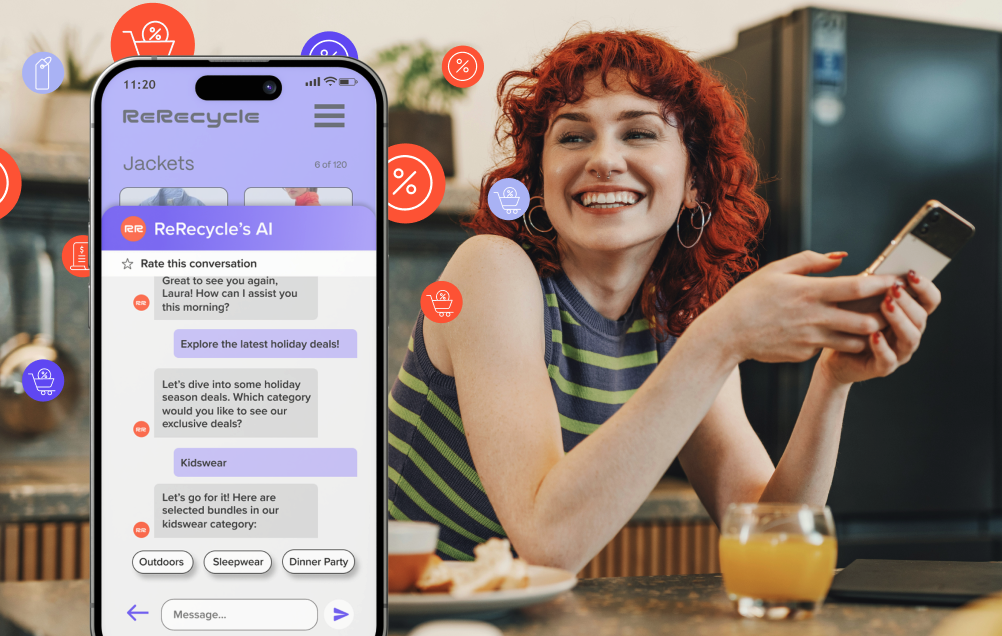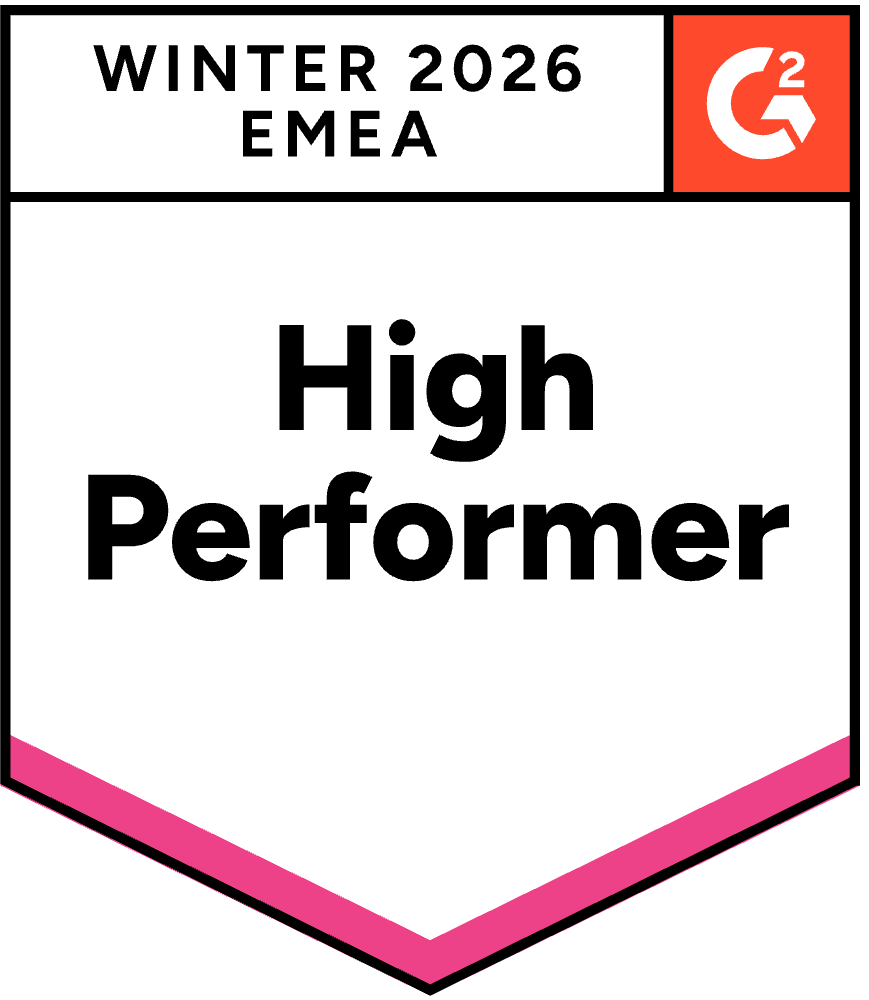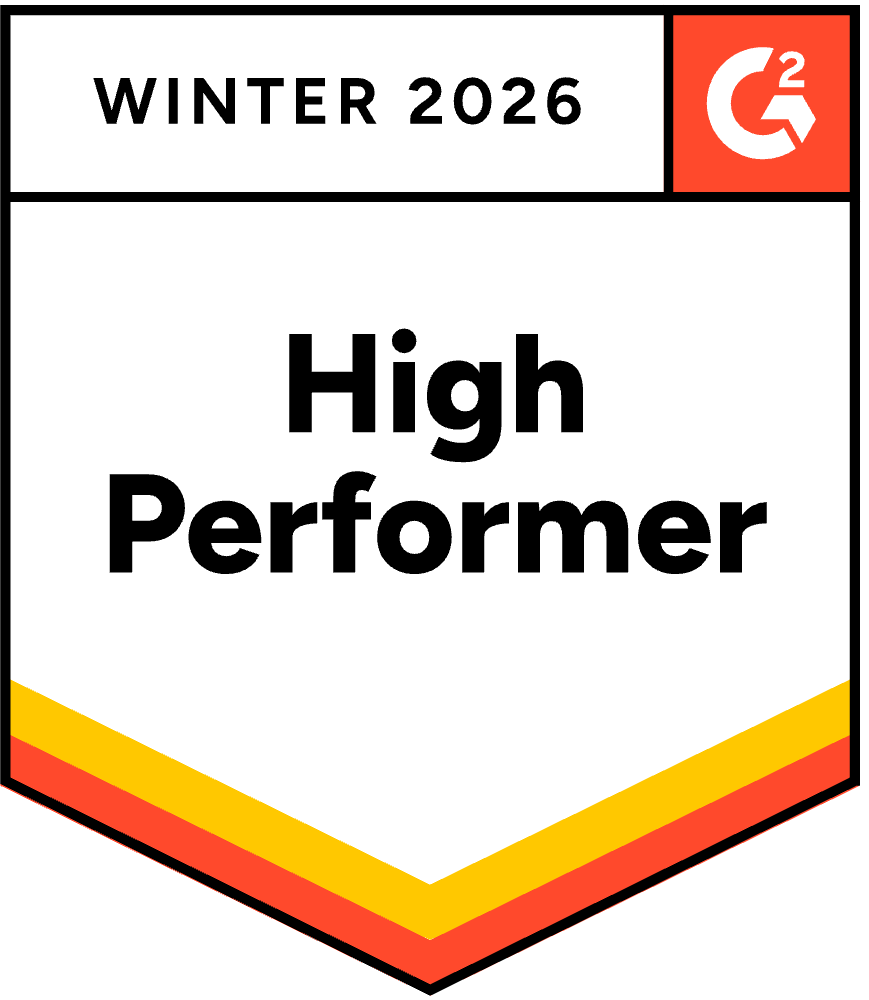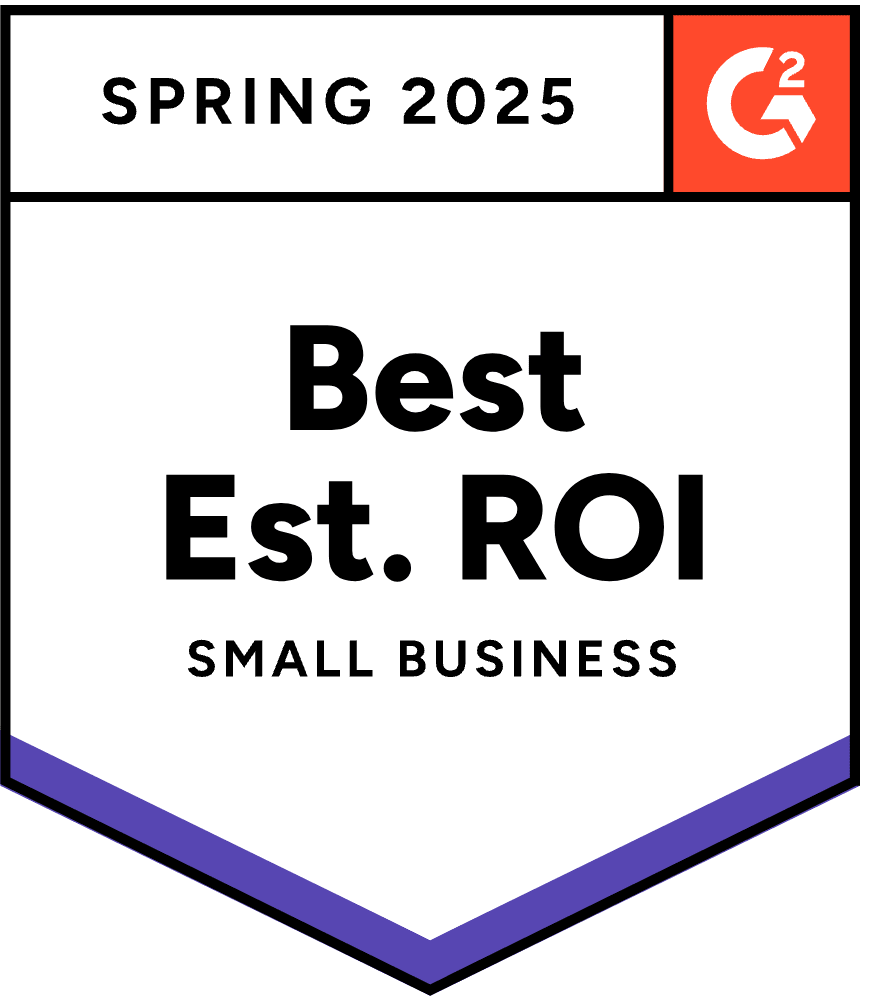9 Best Shopify Product Recommendation Tools to Boost Sales and Personalize Shopping
If you run a Shopify store, you know that helping customers find what they want can make or break a sale.
Product recommendation tools simplify that process by showing shoppers what they’re likely to buy, sometimes before they even realize they’re looking for it. This leads to a smoother shopping experience, higher revenue, and stronger engagement.
Shopify makes it easy to add these tools to your store. The challenge is choosing the one that fits your business, customers, and growth goals.
This guide breaks down nine of the best Shopify product recommendation tools available today, what they do best, and which might fit your store best.
Best Shopify Product Recommendation Tools Comparison Table
The Quantifiable Impact of Product Recommendations on Ecommerce Success
Product recommendation tools have proven their worth across thousands of online stores, delivering measurable results that directly impact your bottom line.
Driving Engagement and Revenue Growth
Shoppers love recommendations. 49% of consumers said they purchased a product they did not initially intend to buy after receiving a personalized recommendation.
That’s nearly half of your audience making extra purchases just because you pointed them in the right direction. It’s no surprise that product recommendations now account for up to 31% of eCommerce revenues.
Boosting Conversion Rates
Stores that use personalized product suggestions can see conversion rates up to 4.5 times higher than those that don’t. When the right product appears at the right time, more people click “Buy.”
Improving Customer Retention and Lifetime Value
Personalized experiences keep people coming back. Retailers using personalized recommendation algorithms have reported a 22% increase in customer lifetime value. It’s easier to build loyalty when shoppers feel like the store “gets” them.
9 Best Shopify Product Recommendation Tools
The nine best product recommendation tools for Shopify are:
- Rep AI: Best for Conversational and AI-Powered Recommendations
- Aiden: Best for Guided Shopping Widgets
- Reconvert: Best for Post-Purchase Product Recommendations
- ConvertFlow: Best for Funnel-Focused Product Recommendations
- Wisepops: Best for Popups and Banner-Based Recommendations
- Dynamic Yield: Best for Enterprise-Grade Personalization
- Monetate: Best for A/B Testing Recommendation Strategies
- AI Trillion: Best for All-In-One Marketing Automation
- Nosto: Best for Infusing Recommendations into Visual Merchandising
1. Rep AI: Best for Conversational and AI-Powered Recommendations
TL;DR: Rep AI is an AI-powered chatbot that delivers human-like, on-brand assistance 24/7, boosting sales through conversational product discovery and reducing support tickets.
About Rep AI
Rep AI brings a conversational twist to product discovery that feels natural and engaging. Instead of static suggestion boxes buried on product pages, Rep guides customers through an intelligent chat interface.
This approach works particularly well on mobile devices, where traditional browsing can feel clunky. Customers can ask questions, get recommendations, and even add items to their cart directly through chat.
What makes Rep AI special is how context-aware it feels. The AI can suggest products based on what's already in someone's cart, which pages they've visited, and what they're asking about in the moment. It's like having a knowledgeable sales associate available 24/7.
The system learns from every interaction, improving its understanding of customers and products over time. You can customize how the AI agent interacts with shoppers, ensuring recommendations align with your brand voice and sales strategy.
Plus, advanced analytics provided detailed insights into revenue generated from product recommendations. You can use these shopper insights to see exactly what items visitors are interested in and further fine-tune your AI’s performance.

Rep AI At-a-Glance
Rep AI’s Key Features
- Deliver AI-powered product recommendations through a natural chat interface
- Provide context-aware suggestions based on cart contents and browsing history
- Maintain 24/7 availability with human-like conversation flow
- Integrate directly with Shopify for seamless product data sync
- Customize brand voice and interaction style
- Track recommendation results with advanced analytics
- Learn in real-time from customer interactions
Pros & Cons
Pros
- Built specifically for Shopify with native integration
- Provides personalized recommendations through natural conversation
- Available around the clock without additional staffing costs
- Improves over time through machine learning
- Mobile-optimized for a better user experience
Cons
- Effectiveness depends on the quality of the product information provided
Case Studies
Kinn Studios, a luxury jewelry brand, needed a high-touch shopping experience that reflected their sophisticated brand image. After implementing Rep AI, they saw measurable customer support and sales improvements.
One significant win came from proactive sales engagement. Using Rep AI to highlight new launches, assist with product recommendations, and guide customers through sizing and quality details, Kinn achieved a 16% higher average order value through AI-assisted sales.
Pricing
Rep AI offers separate plans for Sales Assistant, Support Agent, or a Concierge Bundle, which combines both. You’ll need the Sales Assistant or Bundle to take advantage of the AI’s recommendation capabilities.
- AI Sales Assistant: Starts at $12 (Pay as you grow) up to $2,390/month
- AI Support Agent: Starts at $49/month up to $1,075/month
- AI Concierge (Bundle): Starts at $99/month up to $2,870/month
Top Use Cases
Rep AI works particularly well for stores with complex product catalogs, high-consideration purchases, or customers who benefit from personalized guidance. Fashion, jewelry, electronics, and wellness brands see strong results from conversational recommendations.
Integration Highlights
Rep AI integrates directly with Shopify through the app store, requiring no custom development. The system automatically syncs your product catalog to provide up-to-date recommendations.
It also integrates with many leading third-party solutions, including Yotpo, Klaviyo, Instagram, and Omnisend.
Author’s Tip
Configure the Product Finder settings to match your most common customer questions. The more precise your instructions, the better the AI will make relevant suggestions.
2. Aiden: Best for Guided Shopping Widgets
TL;DR: Aiden provides guided shopping journeys that help take the guesswork out of your personalization strategy.
About Aiden
Aiden is a product discovery platform that helps customers find what they’re looking for, faster and smarter. Rather than leaving shoppers to scroll endlessly through collections, Aiden offers a guided shopping experience powered by AI.
Through quizzes, on-page widgets, and smart filters, it helps match each customer to the perfect product. The visual editor makes it easy to get started without needing a developer, which is a big plus for busy merchants.

Aiden’s Key Features
- Guided shopping widgets with smart filtering
- Smart rules and store-specific controls
- Sidebar, pop-up, in-page, and full-page apps
- A/B testing for performance optimization
- Visual drag-and-drop editor for easy campaign creation
Pros & Cons
Pros
- Constantly improves recommendations through automation
- Good balance of customization and ease of use
- Helps you test and optimize for higher conversions
Cons
- May require regular tweaks for best performance
- Learning period needed before recommendations become highly accurate
Integration Highlights
Aiden integrates with Shopify through a custom integration that automatically pulls product data from your shop and embeds the widgets on your site.
Pricing
- Contact for pricing
3. ReConvert: Best for Post-Purchase Product Recommendations
TL;DR: ReConvert specializes in post-purchase upsells, helping merchants maximize revenue from customers already in a buying mindset.
About ReConvert
ReConvert focuses on one of the most profitable moments in the customer journey: right after someone makes a purchase. When customers are still in buying mode, they're much more likely to add complementary products to their order. It’s like offering them dessert right after a delicious meal.
The platform makes this easy with a drag-and-drop editor and smart rules that optimize each offer to the shopper’s behavior. You can recommend products based on what someone just bought, their browsing history, or predetermined rules you set up.
It’s explicitly designed for Shopify, so setup and integration are smooth and hassle-free.

ReConvert’s Key Features
- Create one-click upsells for immediate purchases
- Deploy post-purchase upsells at optimal moments
- Configure smart rules for customizing recommendations
- Build campaigns with drag-and-drop placement anywhere
- Test and optimize offers through A/B testing
Pros & Cons
Pros
- Made specifically for Shopify merchants
- Streamlines recommendations at key funnel moments
- Customizable and easy to use
Cons
- Product recommendations are focused on upselling
- May not be suitable for stores seeking broader personalization
Pricing
- $4.99/month for 50 orders
- $9.99/month for 100 orders
- $19.99/month for 200 orders
- $39.99/month for 500 orders
- $79.99/month for 1,000 orders
4. ConvertFlow: Best for Funnel-Focused Product Recommendations
TL;DR: ConvertFlow enables you to create personalized product recommendation feeds in Shopify pages, popups, and quizzes without needing designers or developers.
About ConvertFlow
ConvertFlow takes a comprehensive approach to conversion optimization, combining product recommendations with lead capture, landing pages, and funnel building. This makes it ideal for stores that want to nurture prospects while guiding them toward relevant products.
The platform's strength lies in its ability to trigger product recommendations based on specific customer actions. For example, you can show different products to visitors who add items to their cart versus those who are just browsing, creating more targeted experiences.

ConvertFlow’s Key Features
- Filter to show items related to what's in cart, product being viewed, and more
- Use an "Add All to Cart" button for one-click convenience
- Trigger product recommendation popups on add to cart
- Promote products related to past purchases
Pros & Cons
Pros
- Publish to Shopify pages with 1-click
- Multiple formats for presenting recommendations
- Comprehensive analytics and reporting
Cons
- Requires subscription to a broader funnel-building platform
- May include features beyond basic recommendation needs
- Learning curve for utilizing all available features
Integration Highlights
ConvertFlow integrates seamlessly with Shopify and connects with popular email marketing tools like Klaviyo and Mailchimp, as well as analytics platforms like Google Analytics for comprehensive tracking.
Pricing
- Pro Plan: $99/month for up to 30,000 views
- Plus Plan: $300/month for up to 100,000 views
5. Wisepops: Best for Popups and Banner-Based Recommendations
TL;DR: Wisepops uses AI-powered product recommendations that predict customer intent to transform browsing into buying through well-timed pop-ups and banners.
About Wisepops
Wisepops engages through strategically timed popups, slide-ins, and notification bars. While known for lead capture, it’s also adept at promoting product recommendations based on real-time customer behavior.
The platform's AI analyzes multiple data sources, including onsite activity, visitor profiles, and sales performance, to predict purchase intention. This allows it to show the right products to people at the perfect moment.

Wisepops’ Key Features
- Predict purchase intent
- Drive more sales with personalized recommendations
- Remind visitors of products they've already shown interest in
- Leverage insights from billions of data points
Pros & Cons
Pros
- Work across all channels
- Implement without coding
Cons
- May require testing to find optimal pop-up frequency
- Some visitors may find pop-ups intrusive if not well-timed
Integration Highlights
Wisepops integrates with Shopify through the app store and supports connections with Yotpo, Klaviyo, and Google Analytics for comprehensive customer data utilization.
Pricing
- $49/month for 50k pageviews
- $99/month for 100k pageviews
- $249/month for 500k pageviews
- $399/month for 1M pageviews
6. Dynamic Yield: Best for Enterprise-Grade Personalization
TL;DR: Dynamic Yield enables leading global brands to deliver and test personalized, optimized customer interactions with enterprise-scale capabilities.
About Dynamic Yield
Dynamic Yield is built for large-scale operations that need sophisticated personalization across multiple touchpoints. The platform uses advanced algorithms to deliver highly accurate recommendations, including deep learning and reinforcement learning.
The system can handle complex product feeds spanning multiple languages, currencies, and geographies with millions of SKUs. It dynamically optimizes recommendations based on customer attributes, traffic patterns, geography, device type, and numerous other factors.

Dynamic Yield’s Key Features
- Access dozens of powerful strategies, from AffinityML to Geo-Based Predictive Targeting
- Test and optimize any recommendation element
- Adjust recommendations dynamically across products and content
- Drill down into recommendation reports for actionable insights
Pros & Cons
Pros
- Highly customizable algorithms for unique business needs
- Works across all marketing and sales channels
- Enterprise-scale capabilities for extensive catalogs
- Advanced testing and optimization features
- Handles complex international requirements
Cons
- Pricing may be prohibitive for smaller businesses
- May require dedicated resources for optimal management
- Implementation complexity suited for larger teams
Integration Highlights
Dynamic Yield integrates with Shopify via the app store. It connects with Google Analytics, Yotpo, Algolia, and other tools for comprehensive marketing stack integration.
Pricing
- Contact for pricing
7. Monetate: Best for A/B Testing Recommendation Strategies
TL;DR: Monetate focuses on testing and optimization, treating recommendations as hypotheses to be tested rather than set-and-forget features.
About Monetate
Monetate offers a product recommendation engine that combines scalability and best-in-class algorithms. Its testing-first methodology helps retailers discover what actually works for their specific audience and product mix.
Instead of guessing which recommendation placement performs better, Monetate provides concrete data to guide decision-making.

Monetate’s Key Features
- Access multiple algorithms, such as top-selling by purchase count and GeoTarget
- Boost or lower SKUs based on multiple factors
- Deliver recommendations across all channels
- Apply dynamic visitor history filters for targeting
Pros & Cons
Pros
- Strong focus on testing and optimization
- Cross-channel recommendation capabilities
- Serves recommendations based on real-time user signals
Cons
- May require analytics expertise for optimal utilization
- Testing focus might slow initial implementation
- Complex feature set may overwhelm smaller teams
Integration Highlights
Monetate offers custom integration with Shopify and other major ecommerce platforms and marketing tools, providing comprehensive data flow for testing and optimization across the entire customer journey.
Pricing
- Contact for pricing
8. AI Trillion: Best for All-In-One Marketing Automation
TL;DR: AITrillion is an all-in-one marketing platform that targets customers with personalized product recommendations while providing comprehensive marketing automation tools.
About AITrillion
AITrillion takes a holistic approach to customer engagement, combining product recommendations with email marketing, push notifications, loyalty programs, and customer analytics in a single platform.
The system analyzes customer purchase history and browsing behavior to deliver automated, personalized recommendations across multiple channels. You can send recommendations directly via email, display them in smart popups, or include them in push notifications.

AITrillion’s Key Features
- Trigger different recommendations based on customer activities
- Send product recommendations in email campaigns
- Analyze customer data to learn more about your audience
- Integrate loyalty programs with personalized rewards
- Automate marketing workflows with recommendation components
Pros & Cons
Pros
- All-in-one platform reduces tool fragmentation
- Comprehensive customer data for better recommendations
- Cost-effective compared to multiple separate tools
Cons
- May include features beyond basic recommendation needs
- All-in-one platforms sometimes sacrifice depth for breadth
- Migration from existing tools may be complex
Integration Highlights
AITrillion integrates natively with Shopify and connects with popular third-party apps for reviews, customer service, and additional marketing functions.
Pricing
- Startup plan: $19/month for up to 100 orders
- Standard plan: $49/month for up to 300 orders
- Growth plan: $99/month for up to 500 orders
9. Nosto: Best for Infusing Recommendations into Visual Merchandising
TL;DR: Nosto delivers robust personalization tools focusing on customers' unique interactions, combining recommendations with visual merchandising capabilities.
About Nosto
Nosto provides a comprehensive personalization platform that tracks detailed customer behavior, including browsing patterns, purchase history, and even how long visitors linger on specific products. This detailed behavioral data powers highly relevant product suggestions.
The platform's strength lies in its visual merchandising tools, making it easy for non-technical team members to create and manage recommendation campaigns. You can set up campaigns that feel like curated shopping experiences rather than algorithmic suggestions.

Nosto’s Key Features
- Create and edit recommendations with a user-friendly interface
- Enable AI to determine product recommendations automatically
- Highlight products that align with individual interests
- Map comprehensive customer journeys for optimization
Pros & Cons
Pros
- Full-store personalization
- Works well for fast-growing Shopify brands
- Offers visual merchandiser tools for easier setup
Cons
- Pricing may be steep for smaller stores
- Custom features may require support
Integration Highlights
Nosto integrates with popular marketing tools, including Klaviyo, Yotpo, and Attentive, enabling comprehensive customer data utilization across your entire marketing stack. It connects to Shopify via the app store.
Pricing
- Custom pricing
Why Choosing the Right Product Recommendation Tool Matters for Your Bottom Line
Selecting the wrong product recommendation tool can do more harm than good. When customers see product recommendations that don’t align with their interests, they question how well your store understands them. That disconnect can impact everything from click-through rates to overall brand perception.
To choose the right recommendation tool for your Shopify store, consider these key factors:
Business size and traffic volume
Your store’s scale plays a major role in determining suitable tools. Larger retailers with thousands of SKUs and heavy traffic need robust, enterprise-level platforms that handle complex product data and real-time personalization.
On the other hand, small to mid-sized stores may benefit more from lightweight, affordable tools that offer bundled features without overwhelming complexity.
Industry and product type
The kind of products you sell and how customers shop for them can influence which recommendation strategy works best. A fashion brand might prioritize style quizzes and visual merchandising, while a tech store may need cross-sell logic based on specs or compatibility.
Pricing structure
Every recommendation tool has a different pricing model. Some charge based on the number of views or recommendations shown, while others bill per order volume. It’s important to understand how these models align with your store’s traffic, average order value, and margins.
Integration requirements
Your tech stack matters. The best recommendation engine is the one that plays well with your existing systems: Shopify themes, email marketing tools, CRMs, loyalty programs, and analytics platforms. Poor integration can delay setup, create data silos, or result in a clunky customer experience.
Types of Product Recommendation Strategies That Work
Success with product recommendations depends heavily on strategy and placement. Here are a few recommended approaches that have proven effective:

Chat-Based Recommendations
Conversational recommendations through chat interfaces create natural, low-pressure ways to guide customers toward relevant products. Instead of showing static suggestion boxes, these systems engage customers in dialogue to understand their needs and preferences.
"Frequently Bought Together" Product Page Sections
Bundle recommendations leverage purchasing pattern data to suggest products that complement the main item. These recommendations appear prominently on product pages, often near the "Add to Cart" button, where they can influence immediate purchasing decisions.
Personalized Homepage and Collection Page Modules
Your homepage doesn't need to look the same for every visitor. Dynamic content can show trending items for returning customers or highlight restocked products for people who browsed before. This personalization reduces bounce rates and encourages deeper exploration of your catalog.
Checkout and Post-Purchase Upsells
Recommending upsells during and after checkout helps maximize shoppers' buying mindset at the point of purchase. These moments offer some of the highest conversion rates for additional purchases.
Emerging Trends in Product Recommendation Technology
Several emerging trends are reshaping how online stores connect customers with products they'll love.
AI and Hyper-Personalization
Artificial intelligence is moving beyond basic behavioral tracking to create truly unique experiences for each visitor.
Modern systems analyze browsing patterns, purchase history, seasonal preferences, and even external factors like weather or local events to predict what someone might want next.
As third-party cookies disappear, these tools increasingly rely on first-party data collected directly from customer interactions with your store.
Augmented Reality (AR) in Recommendations
Visual try-before-you-buy experiences are becoming mainstream. Customers can see how furniture looks in their living room, try on glasses virtually, or preview how clothing fits their body type.
This technology reduces return rates and increases purchase confidence. Research shows that 57% of customers are more likely to buy from brands incorporating AR into their shopping experience.
Voice Search Integration
Voice commerce is creating new opportunities for product discovery. Customers increasingly ask Alexa or Google Assistant for product recommendations, and forward-thinking brands are optimizing their recommendation engines for voice queries.
Bottom Line
Product recommendation tools have evolved from nice-to-have features into essential revenue drivers for successful Shopify stores. With nearly half of consumers making unplanned purchases based on personalized suggestions, the opportunity to grow sales through relevance and timing is too big to ignore.
Whether your audience needs guidance, inspiration, or quick answers, your recommendation strategy should match how they shop.
Rep AI stands out if you’re looking for a more dynamic and interactive way to deliver recommendations. It combines real-time personalization with a conversational shopping experience to help customers find the right products faster while keeping them engaged and supported every step of the way.
Start your free trial of Rep AI today and see how AI-powered recommendations can drive more conversions for your Shopify store.
Product Recommendations on Shopify FAQ:
What is a Shopify product recommendation tool?
A Shopify recommendation tool is an app or platform that analyses real‑time shopper behaviour—pages viewed, items in cart, purchase history—and serves dynamic product suggestions. The goal is to surface items a customer is likely to buy, raising average order value and conversion rates without manual merchandising.
How do product recommendations increase sales?
Personalised suggestions reduce decision friction. Studies cited by Shopify merchants show recommendation engines can drive up to 31 % of total revenue and lift conversion rates 4 – 5 × versus stores that show the same catalogue to everyone. Relevant items at the right moment translate directly into more checkouts.
What is the best product recommendation solution for Shopify?
Rep AI is widely considered the best Shopify product recommendation tool because it combines conversational AI with real-time, context-aware suggestions. Native Shopify integration, 24/7 availability, and machine-learning improvements let merchants deliver personalised recommendations that lift conversions and average order value without coding or extra staff.
Which Shopify recommendation app is best for conversational shopping?
Rep AI excels at chat‑based discovery. Its AI concierge learns from catalogue data, cart contents, and live questions to recommend products in a human‑like dialogue. This is especially powerful on mobile, where typing SKUs or filtering menus is cumbersome and shoppers prefer quick, guided answers.
What factors should I consider when choosing a recommendation engine?
Evaluate store size, catalogue complexity, integration stack, pricing model, and industry needs. High‑SKU retailers may prioritise AI depth and A/B testing, while smaller brands might want bundled pop‑ups and quizzes. Seamless Shopify integration and first‑party data control are non‑negotiable for most merchants.
Do recommendation apps slow down Shopify site speed?
Well‑built apps load asynchronously, adding milliseconds—often imperceptible—to page speed. Leading vendors use lightweight JavaScript snippets and CDN caching. Always test with Shopify’s Performance metrics and minimise overlapping apps that inject large libraries or duplicate tracking scripts.
Can AI chatbots replace traditional ‘Related Products’ carousels?
Chatbots such as Rep AI offer conversational, context‑aware suggestions, while static carousels give instant visual options. Many high‑performing stores run both: a carousel for quick scanning and chat‑based guidance for deeper assistance, capturing shoppers who prefer either discovery style.
How much do Shopify recommendation tools cost?
Pricing varies by model: some charge on monthly page‑view tiers (e.g., Wisepops), others on order volume (ReConvert) or revenue share. Rep AI offers pay‑as‑you‑grow from $12/mo for its Sales Assistant, scaling to enterprise bundles above $2,000/mo with full concierge capabilities.
Are recommendation engines compliant with data‑privacy laws?
Reputable tools encrypt traffic with TLS, isolate merchant data, and comply with GDPR and CCPA. Always review each vendor’s data‑processing addendum, ensure first‑party cookies are used where possible, and confirm opt‑out mechanisms for behavioural tracking.

.png)
.png)










